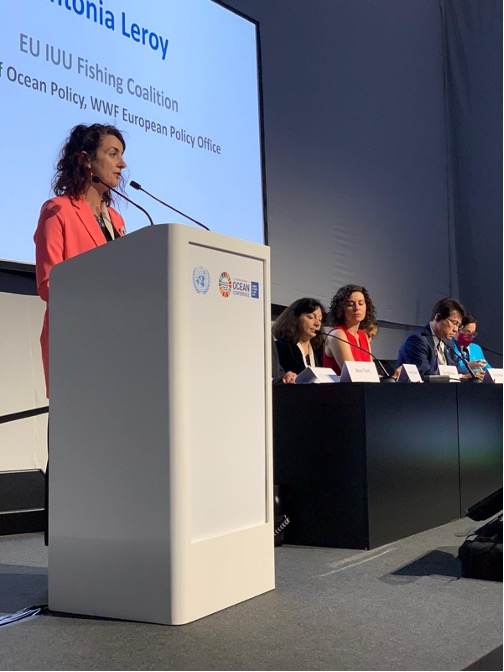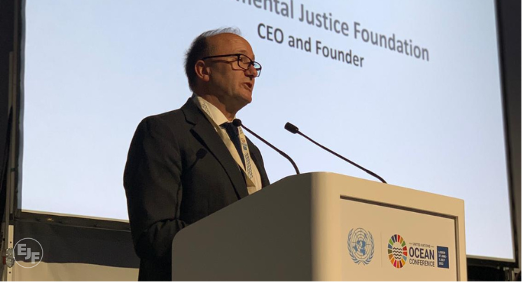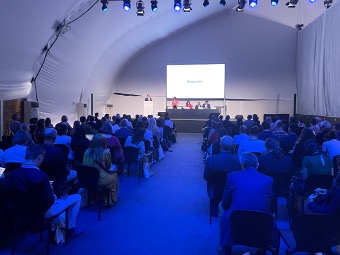As part of the 2022 United Nations Ocean Conference, the EU IUU Fishing Coalition,[1] the US IUU coalition,[2] the Anti-IUU Forum Japan,[3] the Global Transparency Coalition,[4] Sciaena, NGOs active in Regional Fisheries Management Organisations and the Fisheries Transparency Initiative (FiTI) hosted an official side event entitled ‘Increasing Transparency to Eradicate IUU Fishing and Deliver SDG 14’. The interactive discussion showcased how a fundamental shift toward transparency in fisheries governance is critical to the future of our ocean and highlighted the tools and policies already available or in development globally which can be leveraged by all States to scale up global efforts towards eradicating illegal, unreported and unregulated (IUU) fishing.
The event featured panels of high-level speakers from nations tackling IUU fishing and associated human rights abuses, as well as senior representatives of the world’s major seafood markets:
- Charlina Vitcheva, European Union, Director General at European Commission, Directorate-General for Maritime Affairs and Fisheries,
- Monica Medina, United States, Assistant Secretary of State for Oceans and International Environmental and Scientific Affairs) and
- Shingo Miyake, Japan, Parliamentary Vice-Minister for Foreign Affairs.
These speakers were joined by experts:
- Katie Matthews, Chief Scientist, Oceana, speaking on behalf of the Global Transparency Coalition,
- Seraphin Dedi Nadje, Secretary-General,Fisheries Committee for the West Central Gulf of Guinea (FCWC),
- Sven Biermann, Executive Director, Fisheries Transparency Initiative (FiTI),
- Eleanor Partridge, Senior Analyst, Joint Analytical Cell,[5]
- Meg Caldwell, Deputy Director, Oceans, The David and Lucile Packard Foundation
and representatives of the EU IUU Fishing Coalition:
- Dr Antonia Leroy, Head of Ocean Policy, WWF European Policy Office and
- Steve Trent, CEO and Founder, Environmental Justice Foundation.
The panel discussed the application of innovative approaches for linking advocacy networks to build effective tools and concrete policies that combat IUU fishing. These include increasing transparency, import controls, adoption and implementation of key international instruments, international cooperation and information exchange. Global cooperation and coordination will be key in the fight against IUU fishing and it is clear that panellists understand that a fundamental shift toward transparency in fisheries governance is critical to the future of our ocean.
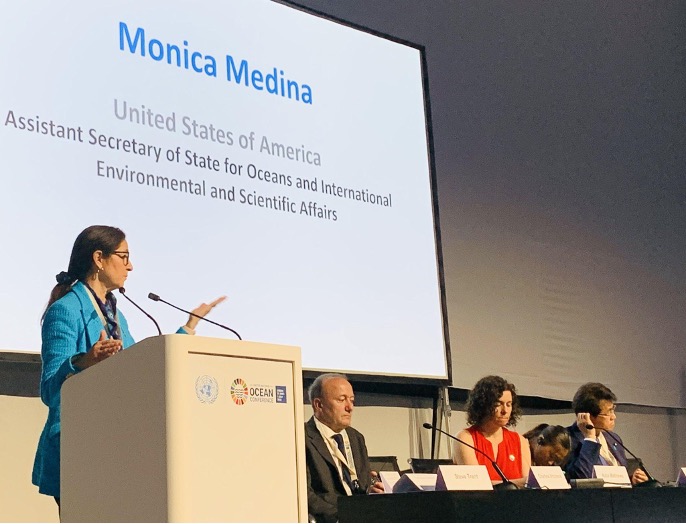
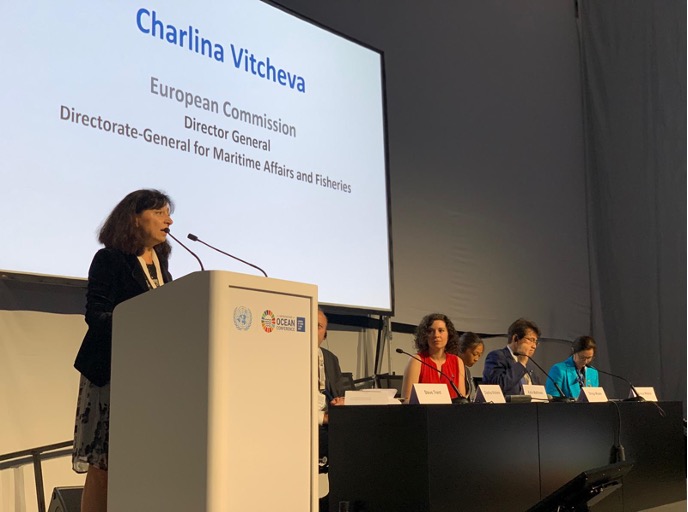
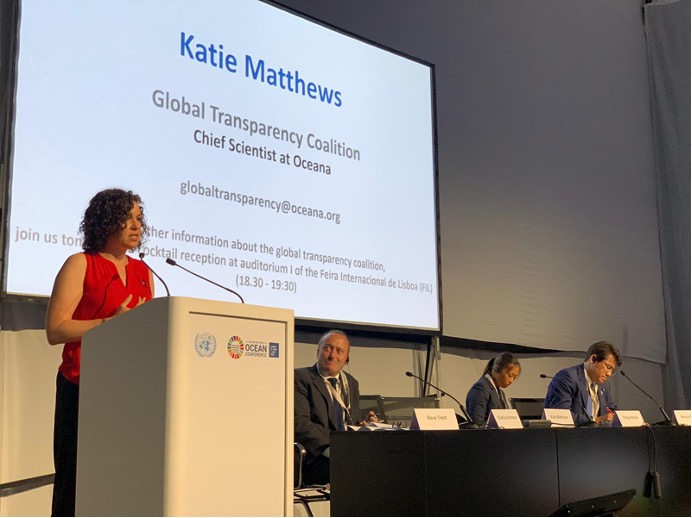
[1] The Environmental Justice Foundation (EJF), Oceana, The Nature Conservancy, The Pew Charitable Trusts and WWF are working together to promote EU leadership in improving global fisheries transparency and governance to end illegal, unreported and unregulated (IUU) fishing.
[2] Oceana, WWF, and Center for Strategic and International Studies (CSIS) collaborate to combat illegal, unreported, and unregulated (IUU) fishing and to incentivize the adoption of sound fisheries management and labor practices on the water and across supply chains.
[3] The Anti-IUU Forum Japan was established in September 2017 by several NGOs and companies in Japan to jointly work on measures against IUU fishing. Current members include World Wide Fund for Nature (WWF) Japan, Seafood Legacy, Sailors for the Sea Japan and The Nature Conservancy (TNC).
[4] This just-launched group includes civil society members and regional coalitions who will collaborate globally to elevate and promote transparency in fisheries governance. The steering committee, co-chaired by Oceana and EJF, includes CIES (S. Korea), Seafood Legacy (Japan), PRCM (West Africa), GFW and the WWF Network.
[5] Founded in 2022 by the International Monitoring, Control and Surveillance Network, Global Fishing Watch and TM-Tracking, the Joint Analytical Cell harnesses innovative technology and the complementary expertise of its wider collaborating organizations to improve the effectiveness of fisheries monitoring, control and surveillance, with a particular focus on developing maritime States.


